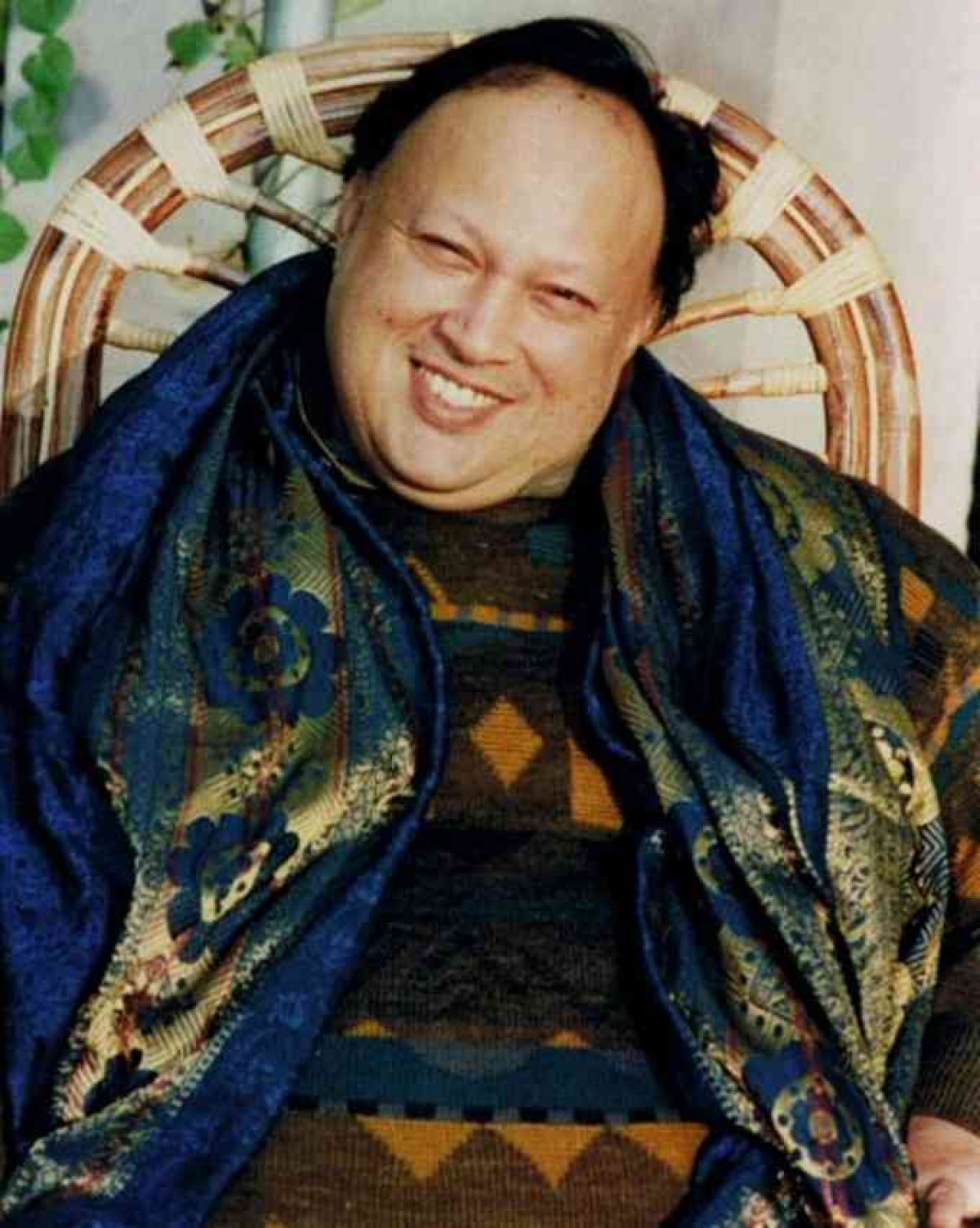
Khan sang mainly in Urdu and Punjabi and occasionally in Persian, Braj Bhasha and Hindi. Khan's first public performance as the leader of the qawwali party was at a studio recording broadcast as part of an annual music festival organized by Radio Pakistan, known as Jashn-e-Baharan. In 1971, after the death of his uncle Mubarak Ali Khan, Khan became the official leader of the family qawwali party and the party became known as Nusrat Fateh Ali Khan, Mujahid Mubarak Ali Khan & Party. However, Khan showed such an aptitude for and interest in qawwali, that his father finally relented. He had his heart set on Nusrat choosing a much more respectable career path and becoming a doctor or engineer because he felt qawwali artists had low social status. Initially, his father did not want Khan to follow the family's vocation. The tradition of qawwali in the family had passed down through successive generations for almost 600 years. Khan's family, which included four older sisters and a younger brother, Farrukh Fateh Ali Khan, grew up in central Faisalabad. He was the fifth child and first son of Fateh Ali Khan, a musicologist, vocalist, instrumentalist, and qawwal. His ancestors learned music and singing there and adopted it as a profession. His family originates from Basti Sheikh Darvesh, who settled in Jalandhar, Punjab in present-day India. Khan was born into a Punjabi Muslim family family in Faisalabad, Punjab, Pakistan, in 1948. In addition to popularising qawwali music, he also had a big impact on contemporary South Asian popular music, including Pakistani pop, Indian pop and Bollywood music. He toured extensively, performing in over 40 countries. He engaged in collaborations and experiments with Western artists, becoming a well-known world music artist.
Rahat fateh ali khan wiki movie#
Khan went on to release movie scores and albums in Europe, India, Japan, Pakistan and the U.S.

He was signed by Oriental Star Agencies, Birmingham, England, in the early 1980s.
.jpg)
He became the head of the family qawwali party in 1971. īorn in Lyallpur (Faisalabad), Khan had his first public performance at the age of 15, at his father's chelum. He belonged to the Qawwal Bacchon Gharana ( Delhi gharana) extending the 600-year old qawwali tradition of his family, Khan is widely credited with introducing qawwali music to international audiences. He was known for his vocal abilities and could perform at a high level of intensity for several hours. He was described as the 4th greatest singer of all time by LA Weekly in 2016. He is considered by The New York Times to be the greatest Sufi singer in the Punjabi, Urdu and Hindi languages, and one of the greatest qawwali singers in history he is often referred to as "Shahenshah-e-Qawwali" (the King of Kings of Qawwali). Nusrat Fateh Ali Khan ( Urdu: نصرت فتح علی خان) (born Pervez Fateh Ali Khan 13 October 1948 – 16 August 1997) was a Pakistani vocalist, musician, composer and music director, primarily a singer of qawwali, a form of Sufi devotional music.


 0 kommentar(er)
0 kommentar(er)
